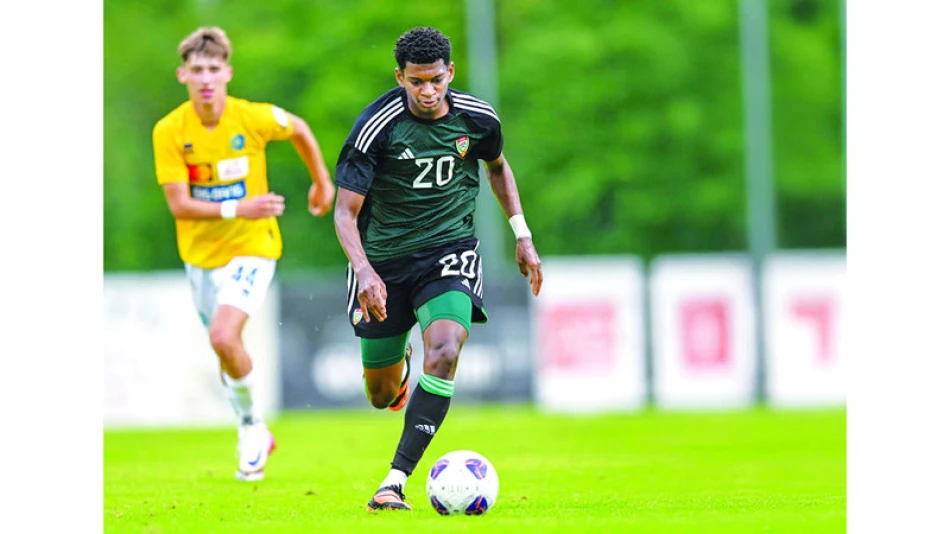
Tigers Face Saudi Arabia or Iraq in Crucial Pre-Playoff Warm-Up for National Team
UAE National Team Faces Critical World Cup Qualifier After Mixed Training Camp Results
The UAE national football team concluded its Austria training camp with two friendly victories, but questions remain about optimal preparation strategies as the squad approaches crucial World Cup qualifying playoffs against Oman and Qatar in October. National coach Abdul Majeed Al-Nimr suggests the team would have benefited more from facing Gulf rivals like Saudi Arabia or Iraq rather than European opponents.
Austria Camp Delivers Mixed Results
Under Romanian head coach Oláriu Cosmin, the UAE secured convincing wins against Italian side Lecce (3-1) and Slovenian club Bravo (2-1) during their Austrian training camp, which ran from July 26 through early August. While the results appear positive on paper, the choice of opponents has sparked debate about preparation effectiveness.
Al-Nimr emphasized that facing Gulf competitors would have provided more relevant match experience, given the similar preparation cycles and playing styles the team will encounter in upcoming qualifiers. "Playing against Saudi Arabia or Iraq would have given us a better impression of our technical readiness," he stated.
Squad Chemistry Shows Promise Despite Setbacks
The camp's primary achievement was building cohesion among players, particularly after integrating several new squad members. Coach Cosmin successfully implemented his tactical philosophy, focusing on both defensive stability and attacking fluidity.
However, injuries to key players Majed Hassan and Fabio de Lima forced early departures, reducing the squad from 29 to 27 players. Al-Nimr downplayed these losses, noting that new additions provide adequate depth.
High-Stakes Playoff Format Demands Peak Performance
The UAE's path to the 2026 World Cup runs through a challenging playoff system after finishing third in their qualifying group with 15 points, behind Iran and Uzbekistan who secured direct qualification. This represents a critical second chance after missing automatic qualification.
October Matches Set Tournament Trajectory
The team faces Oman on October 11 and Qatar on October 14 in the initial playoff round. Qatar, despite finishing fourth in their group with just 13 points, presents a formidable challenge given their recent World Cup hosting experience and continued investment in football infrastructure.
The playoff structure rewards only the group winner with direct World Cup qualification, while runners-up from both groups meet in November (13th and 18th) for Asia's final automatic berth. This format creates intense pressure where a single poor performance can derail World Cup dreams.
Regional Context Highlights Competitive Landscape
The UAE's qualifying struggles reflect the increasingly competitive nature of Asian football. Traditional powerhouses like Japan, South Korea, and Australia face stiffer competition from emerging nations, while Gulf states continue professionalizing their domestic leagues and youth development systems.
Coach Cosmin's appointment signals the UAE's commitment to European tactical sophistication, following successful models in Qatar and Saudi Arabia. However, the integration period between foreign coaching methods and local playing culture often determines success in high-pressure qualifying scenarios.
World Cup Expansion Creates Opportunities
The 2026 World Cup's expansion to 48 teams increases Asia's allocation, providing more qualification pathways. Yet this advantage is offset by improved competition quality across the continent, making every qualifying match increasingly decisive.
The UAE's October fixtures will test whether Cosmin's tactical preparations and squad integration efforts translate into results when qualification hopes hang in the balance.
Most Viewed News

 Sara Khaled
Sara Khaled






